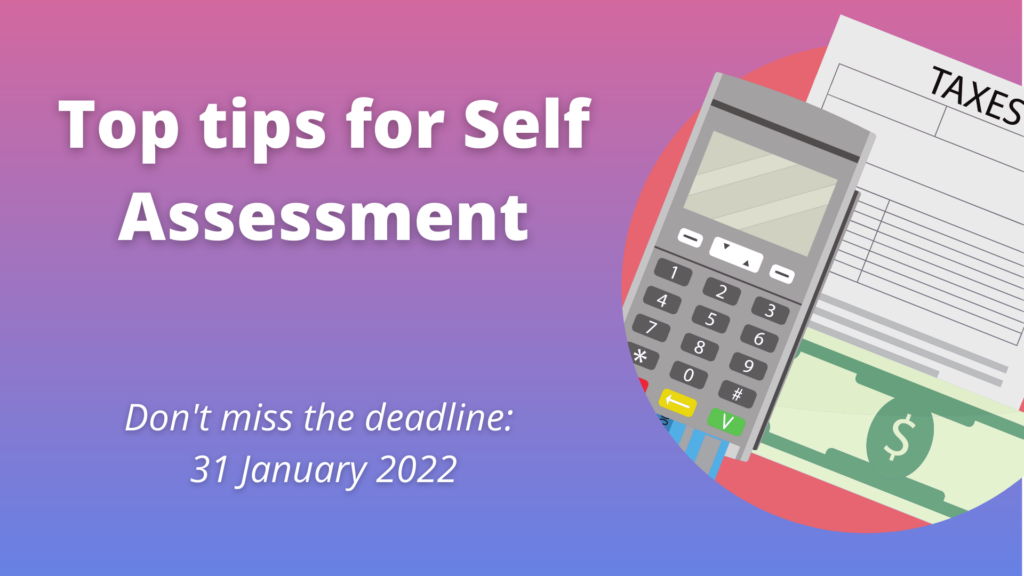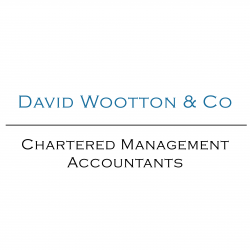The deadline for online tax returns for the 2020/2021 tax year is 31 January 2022. But don’t wait until the last minute. If you haven’t completed Self Assessment and submitted your return yet, make time to do it as soon as possible.

Did you know that more than 63,000 people filed their tax return on 6 April 2021, the very first day of the tax year? There’s no need to wait until the deadline to get things in order, and the longer you leave it, the more stressful it can become.
Here are our top tips to make filing your tax return simple and stress-free.
1. Check that you need to file a return
There are lots of situations where you will be required to file a tax return, but the main ones are:
- your total self-employment income was more than £1,000
- your income from renting out property was more than £2,500
- you earned more than £2,500 in untaxed income, for example from tips or commission
- your income from savings or investments was £10,000 or more before tax
- you’re a director of a company (unless it was a non-profit organisation, such as a charity)
- you, or your partner’s, income was over £50,000 and you’re claiming Child Benefit
- your taxable income was over £100,000
- your State Pension was more than your personal allowance, and your only source of income
- you received a P800 from HMRC saying you didn’t pay enough tax last year.
2. Find your UTR
The first thing you will need is your Unique Taxpayer Reference. Any customer who is new to Self-Assessment receives once they register via GOV.UK.
Check you can get into your Government Gateway account as soon as possible, to avoid a last-minute panic.
3. Get all your details together
Before you start your tax return, gather all the information you will need:
- Your Unique Taxpayer Reference (UTR)
- Your National Insurance Number
- Details of your income throughout the year
- A list of your business expenses
- Details of charity donations or pension payments that may be eligible for tax relief
- P60 or other records of income that you have paid tax on.
This year you will also need details of grants or payments you received from COVID-19 support schemes up to 5 April 2021. These are taxable and include the Self-Employment Income Support Scheme, the Coronavirus Job Retention Scheme and other COVID-19 grants and support payments such as self-isolation payments, local authority grants and support for the Eat Out to Help Out scheme.
4. Find the right form
All Self-Assessments start with the S100 form, which asks you about taxed and untaxed income, pension contributions, charity donations and state benefits. You may also need to fill in additional forms depending on how your business is set up.
If you’re self-employed, you should also use:
form SA103S – the short version if your tax affairs are simple and your turnover was below the VAT threshold (£85,000) for the tax year
form SA103F – the full version – if your annual turnover was above the VAT threshold for the tax year
If you’re in a partnership, you should use:
form SA104S – the short version if you’re only declaring partnership trading income
form SA104F – the full version to record all the possible types of partnership income you might receive
5. Take a break if you need to
The tax return system allows you to save your progress to date, so if you need to stop completing the details for any reason, you don’t need to worry about all your work being lost.
6. Seek advice if you’re uncertain
If you’re unsure about whether something is an allowable expense, or have any other queries, it’s important to check. Either read through the guidance on the government site or get in touch with us for advice and support.
Remember that we can manage the Self Assessment process for you if you would rather not tackle it yourself!
7. Beware of fraud
HMRC urges everyone to be alert if they are contacted out of the blue by someone asking for money or personal information.
There are many fraudsters emailing, calling or texting people claiming to be from HMRC. If in doubt, don’t reply directly, but contact HMRC straight away. You can also find information on the government website.
Worried about Self-Assessment Tax Returns? We can help. As small business accountants in the Lune Vyalle, we’re here to support you with tax returns, accounting payroll services and much more. Get in touch today.

